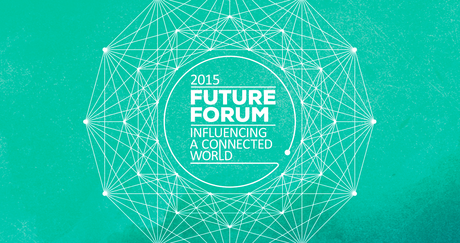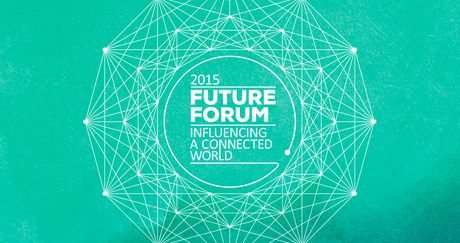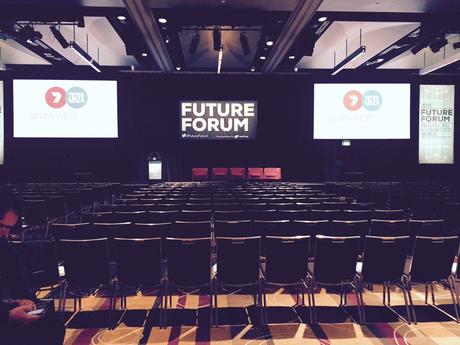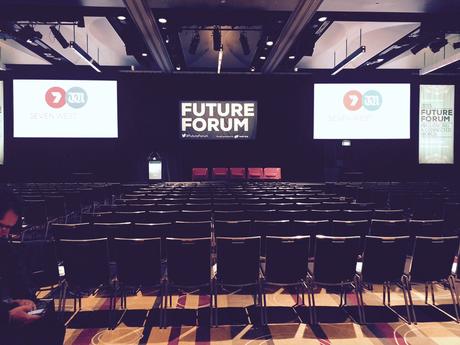This is the weekend edition of TheMarioBlog and will be updated as needed. The next blog post is September 14.




As far as newspaper conferences go, the The Newspaper Works’ Future Forum (#FutureForum) is no different: here in Sydney this week the talk has been about mobile, from how we present information on those mobile platforms, as to how to capitalize on the advertising opportunities they present.
The conference has attracted about 500 publishers, editors, marketing and advertising executives mostly from Australia, but also New Zealand and other parts of the Asia Pacific region.
Here is how Mark Hollands, Chief Executive of The Newspaper Works, summarizes what Future Forum is all about:
“The speed of change, while bewildering in our connected world, shows no sign of slowing. In this Future Forum we take a snap-shot of the disruptive forces, the new opportunities and the strategic agility required for leadership of our industry.
“The 2015 program is designed to embrace the changes and challenges that face every news media company.
The structural change confronting our industry has been upon us for 10 years or more. The relatively recent rise of mobile and video as commercial powerhouse platforms, and the disruption of technology-based solutions such as programmatic trading, bring into sharper focus the need for everyone to better understand our environment and respond to it with speed and agility.”
My own presentation is within a Mobile Future unit and I will discuss the Two Tempos for Designing and Telling Stories in the era of the media quintet.
Highlights of my presentation:
1. State of the media today— frequency and recency. The printed newspaper has lost the time advantage for breaking news, but it has a role!
2. The two tempos— lean forward, lean back.
3. The rise of mobile from tablets to smartphones, the start of the journalism of interruptions and curated editions.
4. From e-papers to smartwatches: the era of at-a- glance journalism has arrived!
5. Readers want a variety of content: from the serious to the silly and presented in a variety of storytelling formats..
The importance of audience
One of the most interesting sessions, part of an Editorial Master Class, was a presentation by Dave Earley, audience editor, The Guardian Australia. I captured the following shareable highlights from Earley's presentation Thursday:
--The role of audience editor is one of several new roles in newsroom: interactive designer, analyst, news analysis, digital cartographer, data visualization specialist, editor for products and partnerships.
--The role of an audience editor: at the heart of the newsroom, leads news meetings.
--Audience editors have a responsibility to know the journey of readers: where are they coming from? What have they read before?
--Newsroom leaders need to know aware of how readers are consuming the information…"we know where people are coming from, and how content is resonating with them. We monitor changes in behavior, reactions to stories."
--Engage time/attention time is something we look at carefully now
--Journalism exists for an audience, and for that we need to be serious about data.
--We do a disservice to journalists by not finding the right audience for their work
--Make sure everyone in newsroom has access to the tools to do their job better .
--What are some ways to engage the reader?
Add subheadings
Add pictures
Add video
Improve the opening paragraphs
Follow highlights of the Future Forum
Follow the conference via Twitter: #FutureForum
Follow me as I report highlights from the Future Forum: @DrMarioRGarcia
Germany's Bild: an edition without photos
Bild is one of Germany's (and the world's) most photo-driven newspapers. In fact, its title Bild means image/photo. So, when Bild's editors decided to print an entire edition without photos, their message got home. Plain and simple. The decision was to make a statement. Some had complained when Bild ran a photograph of the young Syrian refugee whose body was seen washed upon the shore. The editors insisted that the photo needed to be seen, that, indeed, a change the conversation about the refugee crisis in Europe. Others thought differently.
Our colleague, Robb Montgomery, has made a short video flipping through the pages of that edition of Bild. Here you go (with thanks to Robb for sharing it with us):
Read more about Bild's no-photo edition
http://www.theguardian.com/media/2015/sep/08/bild-photos-aylan-kurdi-complaints

